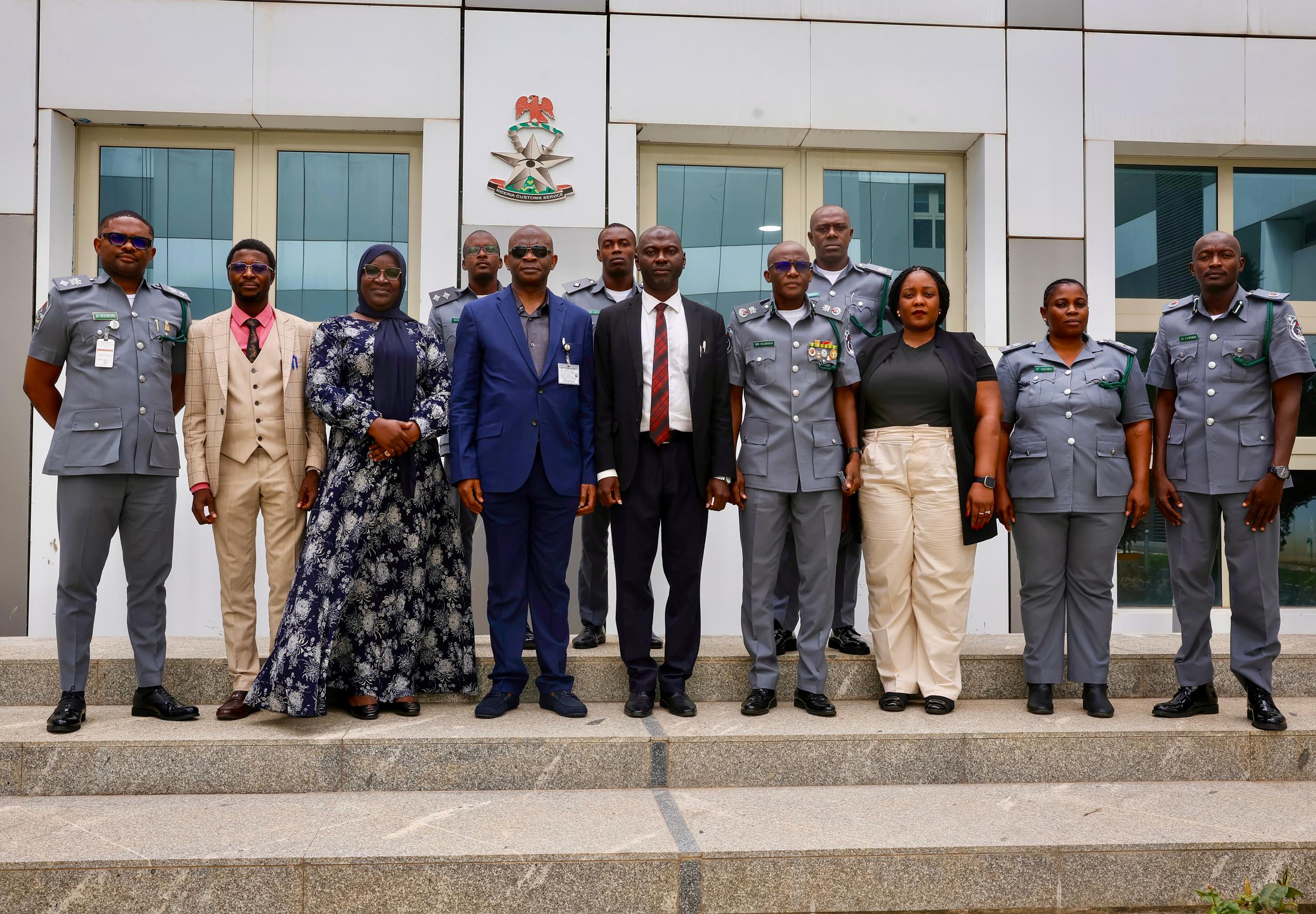Nigeria Customs Deepens Institutional Integrity with ICPC’s Ethics, Compliance Tools

…Service embraces transparency and accountability with national anti-corruption scorecards
The Nigeria Customs Service (NCS), in a move to institutionalise transparency and enhance ethical standards, has welcomed a strategic collaboration with the Independent Corrupt Practices and Other Related Offences Commission (ICPC), which on Wednesday, 18 June 2025, commenced the deployment of its flagship integrity tools — the Ethics and Compliance Scorecard (EICS) and the Anti-Corruption and Transparency Unit (ACTU) Effectiveness Index (AEI) — across the Service.
The exercise, which took place at the Customs Headquarters in Abuja, marks a renewed commitment by the NCS leadership, under the stewardship of Comptroller-General of Customs, Adewale Adeniyi, to align with the Federal Government’s anti-corruption agenda and strengthen institutional frameworks for ethical governance and public trust.
Representing the CGC at the session, Assistant Comptroller-General of Customs in charge of Headquarters, Isah Umar, hailed the initiative as timely and instrumental to the Service’s ongoing reforms.
He reaffirmed the NCS’s dedication to institutional transparency, professionalism, and citizen-oriented service delivery.
“This is an important oversight process to evaluate ethics and integrity levels across government agencies. For us in the Nigeria Customs Service, it aligns with our broader reforms aimed at ensuring professionalism, accountability, and citizen-focused service delivery,” ACG Umar stated.
“We have carefully reviewed the requirements of this assessment and assembled all relevant documentation. We invite the ICPC team to critically review them, and we remain open to collaboration for continuous improvement,” he added.
Also speaking during the engagement, Comptroller Emmanuel Oshoba of the Customs Intelligence Unit and Comptroller Hannel Hadison of Special Duties highlighted the proactive steps the Service has taken in mainstreaming its ACTU structure across all formations.
According to them, the institutionalisation of ACTUs across Customs commands has yielded tangible outcomes in promoting transparency, monitoring internal compliance, and reinforcing the anti-corruption culture.
They noted that designated ACTU desk officers are not only raising awareness within the Service on corruption-related issues but are also working actively to track adherence to best practices in public service ethics.
On behalf of the ICPC, Umar Sani, who led the delegation, explained the strategic value of the Scorecard and Effectiveness Index as key tools in assessing the internal health of public institutions.
He noted that the Commission’s annual deployment of the tools across Ministries, Departments and Agencies (MDAs) is part of a preventive approach to anti-corruption.
“The deployment of the Ethics and Compliance Scorecard and the ACTU Effectiveness Index is a preventive tool to ensure MDAs, including the Nigeria Customs Service, are compliant with institutional ethics and procedures,” Sani said. “It also evaluates transparency and accountability structures and assesses the strength of internal systems.”
He further elaborated that the EICS evaluates MDAs based on four core parameters: management structure and culture, financial management systems, administrative procedures, and the performance of their ACTUs.
According to him, ACTUs, which are domiciled in all MDAs, serve as the institutional mechanism for sensitising staff, detecting unethical conduct, and serving as a liaison with the ICPC.
The collaborative effort marks yet another step in NCS’s drive to deepen institutional reforms, entrench accountability, and inspire public confidence in its operations.
It also reflects the increasing integration of ethical oversight mechanisms across Nigeria’s public sector in line with international governance standards.







